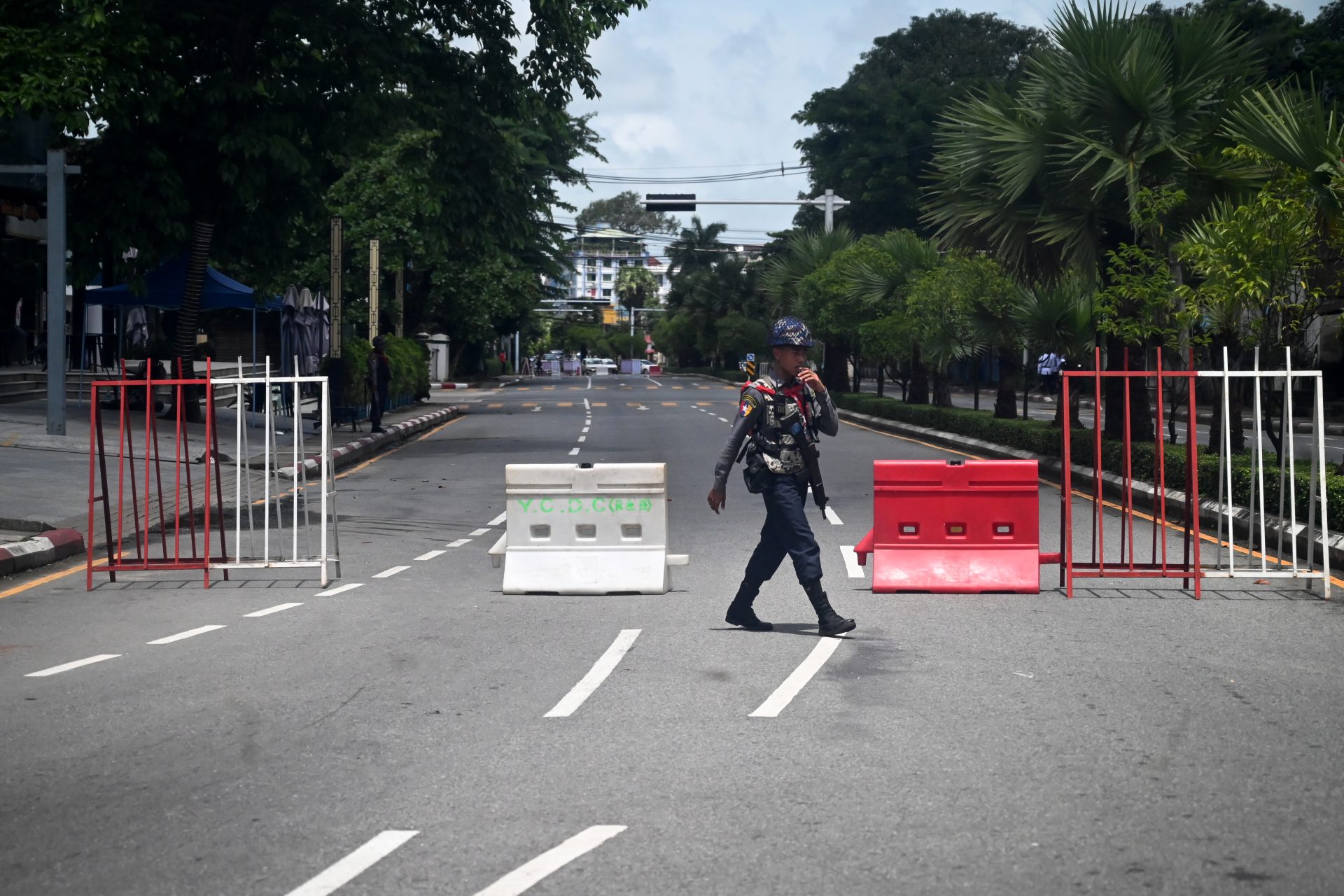The U.N.’s special envoy for Myanmar called for an immediate end to violence in the Southeast Asian country and asked to see ousted leader Aung San Suu Kyi in a meeting with the country’s junta military government on Wednesday.
Opponents of the regime said they doubted the visit would change conditions in the country and that it risked giving legitimacy to the regime, which ousted the democratically elected government in a Feb. 1, 2021, coup.
Noeleen Heyzer, who arrived in Myanmar on Tuesday, met with Snr. Gen. Min Aung Hlaing in Naypyidaw where she discussed steps to end the fighting and the need for “unfettered humanitarian assistance,” according to a statement from the United Nations.
United Nations Secretary-General Antonio Guterres “is extremely concerned about the gravity of the humanitarian, security, economic and political crisis,” Heyzer said in the statement.
“My visit is to convey the concern of the United Nations and propose concrete steps needed to reduce the conflict and suffering of the people. U.N. engagement does not in any way confer legitimacy. The people of Myanmar have the right to democracy and self-determination free from fear and want, which will only be possible by the goodwill and efforts of all stakeholders in an inclusive process.”
Heyzer said that progress depends on ending violence and improving the lives of the people of Myanmar.
The United Nations recently condemned death sentences carried out by the junta against four pro-democracy activists, and Heyzer urged Min Aung Hlaing to put a moratorium on executions. She also reiterated Guterres’ recent call for the release of all political prisoners in Myanmar, and carried the Australian government’s request for the release of Australian economist Sean Turnell.
Turnell was arrested five days after the coup and faces charges of violating a state secrets law when he served as an advisor to deposed leader Aung San Suu Kyi, who is currently in prison serving a 17-year sentence.
Heyzer during Wednesday’s meeting also requested a meeting with Aung San Suu Kyi and expressed concern about her health.
“I want to have an opportunity to meet with her as soon as possible, both because I care about her personally, and I believe she is a critical stakeholder for my dialogue with all parties concerned,” Heyzer said.
The junta’s spokesman Maj. Gen. Zaw Min Tun told a press conference in Naypyidaw after the meeting that he did not know what Heyzer and Min Aung Hlaing discussed but that the regime hoped “that the meeting will yield good results.”
Some junta opponents criticized the visit, saying the regime would use it to promote itself and there was little expectation it would bring a resolution to the crisis.
“The timing of the arrival of the U.N. secretary general’s special representative is questionable,” Kyaw Zaw, a spokesman for the country’s shadow National Unity Government (NUG), told RFA’s Burmese Service.
“Daw Aung San Suu Kyi has just been sentenced to another six years in prison. The junta are killing democracy activists. So I doubt if [Heyzer] could stop the violence at this point,” said Kyaw Zaw.
He also noted that the junta is restricting the flow of humanitarian aid to areas in need in the country.
Political observer Than Soe Naing said Heyzer’s plan to stop the violence is well-intentioned but agreed it was unlikely to yield significant results, as the fighting has intensified over the past year and a half since the coup.
“The suspension or the elimination of violence will not be accepted by the military council nor by the NUG and PDF groups … because there’s no way to end the violence and meet the demands of the two sides,” Than Soe Naing said.
But Boh Nagah, leader of the Pale township Public Defense Force fighting the regime in the Sagaing region in the country’s north, said he was hopeful U.N. intervention would stop the conflict.
“It will all be over as soon as the United Nations deals properly with the atrocities the junta has committed or makes the junta inevitably give in, according to the wishes of the people,” he told RFA.
“We do not enjoy holding these weapons. We have to use these weapons unavoidably to resist [the junta] and protect ourselves,” Boh Nagah said. “It’s not violence from two sides. So, once the main culprit is dealt with properly, the problem will be gone.”
Junta spokesman Zaw Min Tun has told RFA that the PDFs were destroying the villages, not the junta’s soldiers.
Copyright © 1998-2020, RFA. Used with the permission of Radio Free Asia, 2025 M St. NW, Suite 300, Washington DC 20036.
